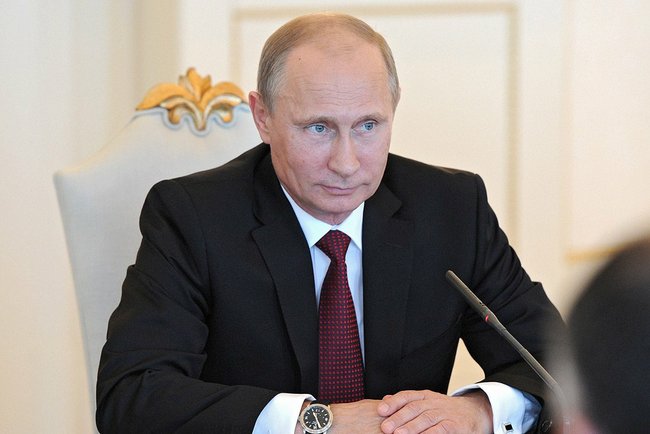 Last week, UkraineAlert linked to an interesting piece by Clifford Gaddy criticizing the West’s sanctions on Russia for its aggression in Ukraine. His point is this: Putin believes that Russia is “under assault” by the West and cannot allow Ukraine “to be brought fully into the sphere of influence of its enemy.” Therefore, the West cannot “force a change in Putin’s calculus” by sanctions. Putin will pursue his objectives in Ukraine by any means possible despite sanctions. For the West to “win” in Ukraine, Gaddy says, “Russia must collapse completely.”
Last week, UkraineAlert linked to an interesting piece by Clifford Gaddy criticizing the West’s sanctions on Russia for its aggression in Ukraine. His point is this: Putin believes that Russia is “under assault” by the West and cannot allow Ukraine “to be brought fully into the sphere of influence of its enemy.” Therefore, the West cannot “force a change in Putin’s calculus” by sanctions. Putin will pursue his objectives in Ukraine by any means possible despite sanctions. For the West to “win” in Ukraine, Gaddy says, “Russia must collapse completely.”
Gaddy’s analysis is sophisticated, but with three critical gaps. First, he talks about the West and Russia and leaves out the most important actor of all: the Ukrainian people. The Ukrainians have made their choice clear: they want a democratic state, an economy free from corruption and an orientation toward Europe. They too will have a say in their future, and they have made clear their willingness to fight for their freedom. Putin’s military can seize any part of Ukraine that it chooses, but it is not clear that it can hold what it seizes.
Second, Gaddy conflates Russia and Putin frequently. That conflation is not always correct. It appears that Putin is willing to accept substantial damage to his economy for the sake of his Ukrainian adventure. But, ultimately, is this something that the rest of the Russian elite and the Russian people will accept?
We know that there is discontent with Putin’s aggression in Ukraine among financial elites in Russia. We also know that the arguments Putin makes to justify his aggression (more on that below) are arguments for a Russia centered in Eurasia, not a Russia as part of the global economy. This vision for Russia was not the vision of the Yeltsin years or even Putin’s first few years in power.
The last gap in Gaddy’s analysis concerns Moscow’s security doctrine. He notes that Russia “believes that the only real guarantee of its own security is its independent ability to defend itself.” He does not provide critical detail of the content of current Russian security doctrine. Putin and his government claim a right to a sphere of influence in the area of the Soviet Empire, and a right to intervene wherever and whenever ethnic Russians are “in danger.” Putin has cited these alleged rights to invade two countries (Georgia and Ukraine), to provoke Baltic NATO allies (by kidnapping an Estonian intelligence officer from Estonian territory, and seizing a Lithuanian ship in international waters in the Baltic Sea) and to threaten Kazakhstan (by noting that it is an “artificial country” and that after President Nursultan Nazarbayev leaves the scene ethnic Russians in that country may be subject to mistreatment).
Put another way, the West and Putin may have different concepts of security, but so did the West and Hitler. I am not comparing Putin to Hitler. Rather, I am suggesting that the most important question Western leaders must ask is whether Putin’s security doctrine and practice represent a threat to neighboring countries and the West. That is not a question that Gaddy asks.
Evidence suggests that Putin’s objectives include establishing the right to intervene in the post-Soviet space and weakening NATO’s presence in Eastern Europe. These objectives are a danger to our security.
The next question is how do we deter Putin from seeking these objectives or, if deterrence fails, from achieving them. That is where sanctions come in. Thus far, they have not stopped Putin’s aggression in Ukraine—and they may never stop it. But sanctions do weaken Russia, which makes it harder to commit aggression. To deter future aggression or, if deterrence fails, to weaken Russia, the West should also supply substantial military arms to Ukraine, including defensive lethal equipment. Such equipment would mean that Putin would have to use more resources to achieve his objectives in Ukraine, which would leave him with fewer resources elsewhere.
Is it not in the West’s interest to make aggression harder for a nuclear power that considers it, in Gaddy’s words, an “enemy?” Sometimes, the most important questions are too simple for sophisticated analysts.
